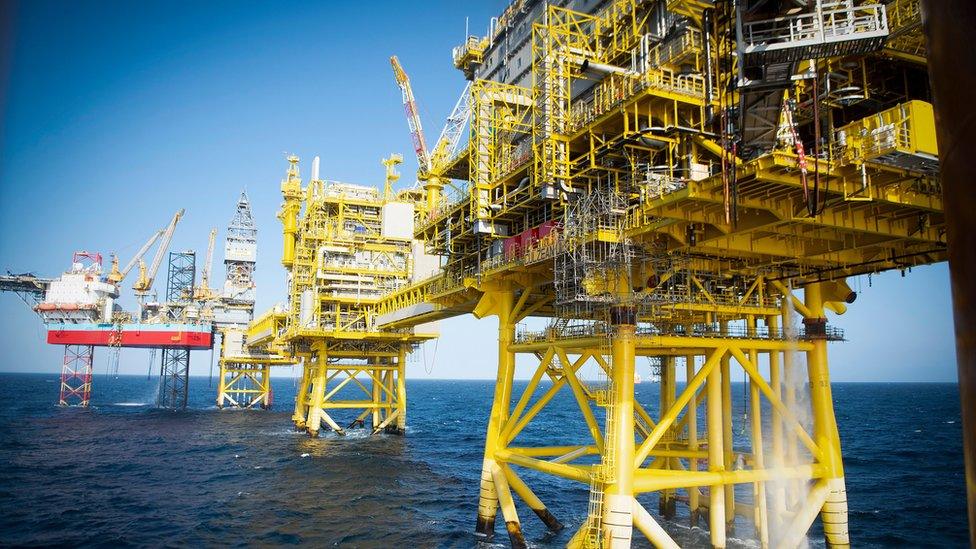OEUK calls on government for rapid North Sea action
- Published
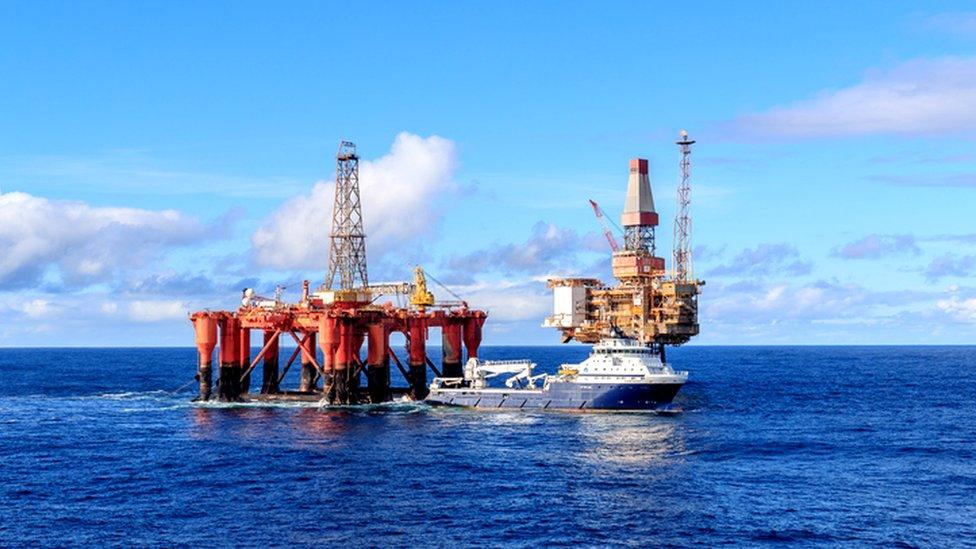
OEUK says there are enough North Sea energy reserves to fuel the UK for 30 years
Energy firms have called on the UK government to "rapidly accelerate" investment in the North Sea.
Trade body Offshore Energies UK (OEUK) said urgent action was needed to reduce the UK's reliance on exports and vulnerability to global price shocks.
It urged ministers to announce the next round of oil and gas exploration licences as soon as possible.
OEUK also called for production approvals to be speeded up, as well as a rapid expansion of offshore wind.
In an economic report focusing on UK energy security, the organisation said there were energy reserves equivalent to 15 billion barrels of oil - enough to fuel the UK for 30 years.
But it warned that without "rapid new investment", the UK would have to import about 80% of its gas and 70% of its oil by 2030.
The report comes as new Prime Minister Liz Truss is poised to announce a raft of measures to deal with soaring energy costs.
Speaking outside Downing Street on Tuesday, Ms Truss promised to "deal hands on with the energy crisis caused by Putin's war".
She said she would "take action this week to deal with energy bills and to secure our future energy supply".
OEUK's economic report estimates that the annual industry and consumer spend on energy will triple if the current planned October price cap increase goes ahead.
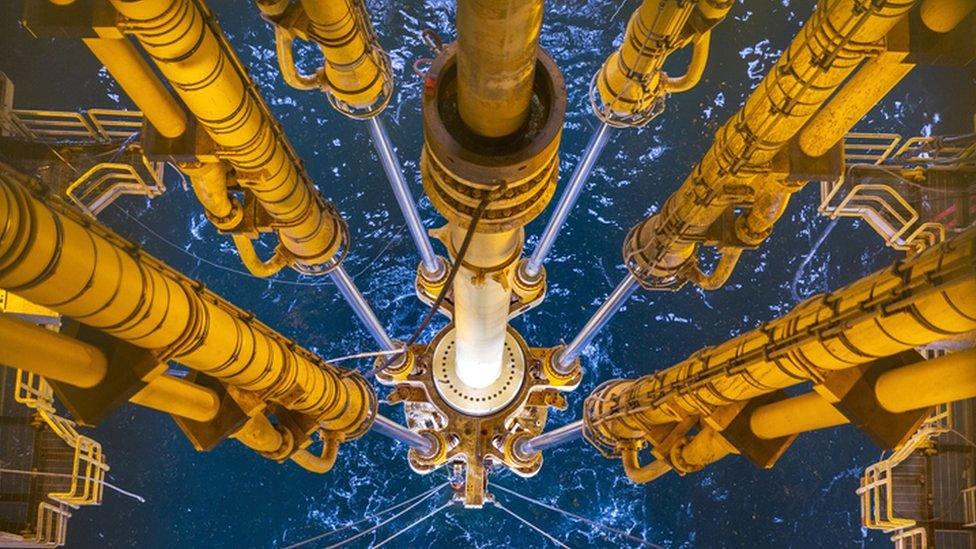
It also called for the Scottish and UK administrations to align regulation, responding to concerns that carbon capture and storage projects in the North Sea may be hampered by conflicting marine planning issues for offshore wind farms.
The trade organisation said the time taken to develop an offshore project and get it into production should be "slashed", in particular complaining about the average 10-year wait to get grid connections agreed.
'Red alert'
OEUK's acting chief executive Mike Tholen said the report was a "red alert for UK energy security" as he urged the UK government to break its reliance on Russian oil.
He said: "The UK's homes and businesses cannot yet do without these fuels, but Putin's war in Ukraine shows the risks of relying on other countries for energy.
"Our North Sea reserves mean the UK can protect itself - provided we invest - as well as building the low-carbon systems for the future."
Mr Tholen said expanding the supply of low carbon energy such as wind and hydrogen was needed, but the scale-up would take time.
He added: "UK gas will give us a bedrock of reliable energy through the transition and minimise reliance on imports.
"In practical terms we need the new government to rapidly announce the next round of oil and gas exploration licenses and speed up production approvals."


Almost 10 months since COP26 put a severe chill through the offshore oil and gas industry, today's industry report feels very different.
Oil and Gas UK had changed its name to Offshore Energy UK, to show its enthusiasm for marine renewables alongside hydrocarbons.
But President Putin's invasion of Ukraine has pumped life and hope back into the drilling business in British waters.
The argument is not over whether oil and gas should be burned. It now has evidence of what happens when supply is disrupted by an unreliable trading partner many years before the economy is ready to replace it. So the argument is about the reliability of where that energy is sourced.
A further argument is whether a lower domestic price should be charged for British-sourced energy. OEUK senior executives say its corporate members are talking to government about that, but also warned how difficult it would be to implement dual pricing.
There's a confidence returning to the industry, now that a new prime minister sounds fully up for embracing the case for energy security. The Tory leadership race was not notable for its concern about climate change, instead closing on a reported desire by Team Truss to issue up to 130 new drilling licences.
OEUK says some of these are projects that could be completed quickly. Others are areas of seabed where seismic surveys and exploratory drilling have yet to take place.
Six billion or so barrels of oil, or its gas equivalent, has been found. Of the claim that there are 15 billion barrels yet to be extracted, most of that is yet to be found, and to prove commercially viable.
There is now leverage with Downing Street to help with the tax stability and regulatory support to make it so.
- Published26 May 2022
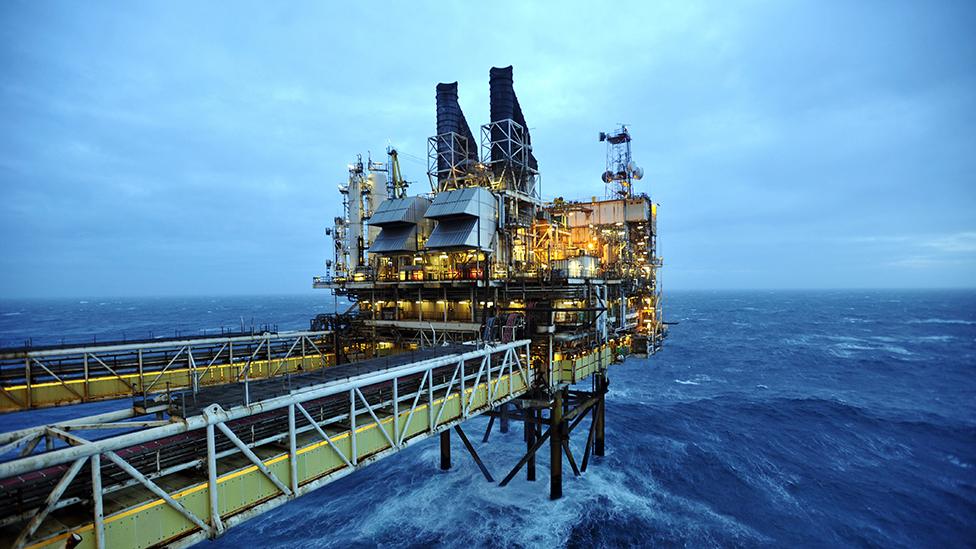
- Published29 March 2022
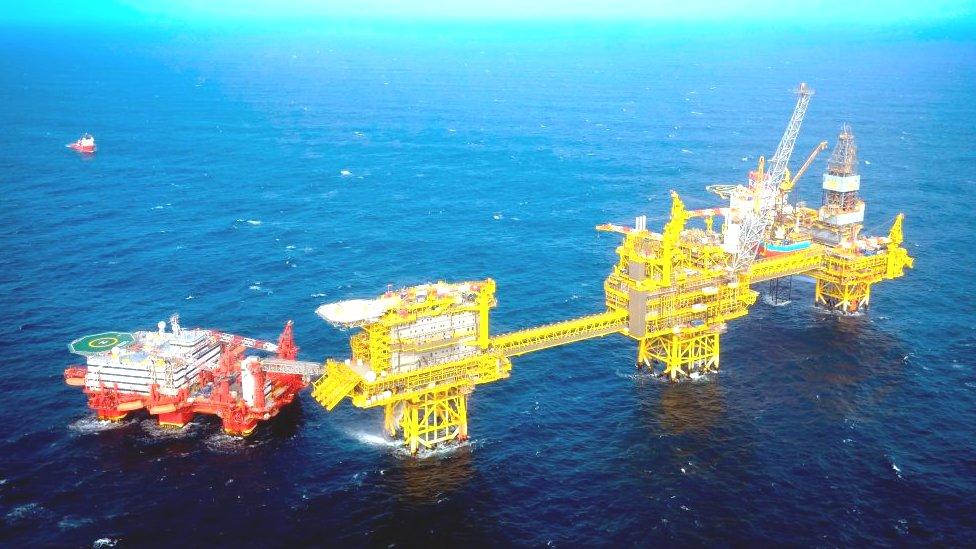
- Published10 March 2022
